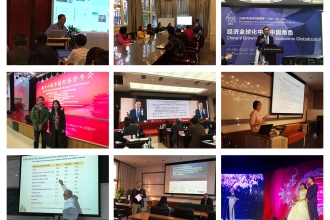Assessing the abatement potential and cost of Chinese industrial water pollutants
Water pollution is becoming an increasing threat to China's sustainable development. To respond to this challenge, China has pledged to cut emissions of two major water pollutants, chemical oxygen demand (COD) and ammonia nitrogen (NH4), and has disaggregated the national target among provinces. However, the abatement potential and costs have not been thoroughly assessed. This paper aims to examine the reduction potential and associated costs of COD and NH4 in the Chinese industrial sector.



